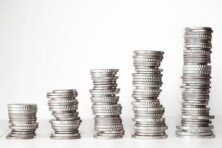The Japanese economy showed growth in the second quarter of the current year.

It is worth noting that Tokyo faced a negative economic reality at the beginning of 2024. In this case, it means the state’s gross domestic product (GDP) downturn. Over time, the situation improved. From April to June of the current year, the Asian country’s economy showed growth of 3.1% compared to the result for the same period last year.
The positive result for the last quarter is largely due to a significant increase in consumption in Japan after the downturn in this activities space, recorded in early 2024. Also, the condition of the Asian country’s economic system is impacted by the fact that the local financial regulator is highly likely to decide on another increase in interest rates in the short term.
The Bank of Japan predicts a strong economic recovery will contribute to inflation will reach the 2% target. Also, the financial regulator of the Asian country expects that the dynamic of the growth in the cost of goods and services will form conditions that will be favorable and natural for continuing actions to change monetary policy. Last month, the Bank of Japan raised the cost of borrowing. This decision was made as part of the realization of the intention of the financial regulator of the Asian country to abandon the long-term large-scale monetary stimulus.
Kazutaka Maeda, an economist at Meiji Yasuda Research Institute, says that the figures for the last quarter are positive. Also in this context, the expert drew attention to signs of an increase in private consumption, which is backed by the growth in real wages. Moreover, Kazutaka Maeda says that the results for the last quarter confirm the expectations of the Bank of Japan and are a good argument in favor of continuing to raise interest rates. At the same time, the expert assumes that the financial regulator of the Asian country will act cautiously in the context of further changes in monetary policy. Kazutaka Maeda says that the corresponding tactics of the Bank of Japan’s behavior are realistic since the latest increase in the cost of borrowing caused a sharp spike in the yen exchange rate.
Private consumption, which accounts for more than 50% of output in the Asian country’s economic system, increased by 1% in the second quarter of 2024. It is worth noting that this particular segment of the Japanese economy was a kind of point of vulnerability. Last year, the dynamic of private consumption in Japan slowed down. This tendency was the result of households taking measures aimed at struggling with the increase in the cost of living. The corresponding state of affairs was formed partly due to higher import prices against the background of a weak yen.
It is worth noting that the problem of the cost of living has become a sensitive factor affecting the mood in Japanese society. According to media reports, this problem is one of the reasons for the decision of the Prime Minister of the Asian country Fumio Kishida to announce his resignation next month.
Kengo Tanahashi, economist at Nomura Securities, expects Japanese consumption to continue to recover. According to the expert, the increase in income will stimulate the mentioned activity against the background of such factors as the reduction of fixed-rate taxes, which began in June, subsidies for electricity and gas bills from August, and spring wage negotiations.
In Japan, the growth in retail sales this year is to some extent due to the influx of tourists. Fast Retailing, the owner of the Uniqlo clothing brand, in its latest reports, draws attention to the strengths of the Asian country’s market. In this case, the firm primarily meant an increase in sales in duty-free trade.
Tourist spending in Japan is expected to reach 8 trillion yen ($54.74 billion) this year. The government of the Asian country adheres to the corresponding forecast. It is worth noting that the Japanese authorities perceive tourism as an important factor in economic growth. It is worth noting that this sector was in the territory of limited opportunities for a long period due to the aging of the population.
Capital spending in Japan increased by 0.9% last quarter. It is worth noting that this spending is the main factor of growth driven by private demand.
Last month, the Bank of Japan not only decided to raise interest rates but also announced plans to reduce the scale of bond buying. This intention of the financial regulator is another move within the framework of phasing out massive monetary stimulus.
Currently, Japan is the world’s outlier in raising interest rates. Most financial regulators in other countries have either already begun to implement monetary policy easing measures, like the European Central Bank, or are considering making appropriate decisions in the short term, like the Federal Reserve.
Marcel Thieliant, head of Asia-Pacific at Capital Economics, suggests that consumption growth for the first time in more than a year should be an argument for the Bank of Japan in favor of another increase in borrowing costs in the current year.









